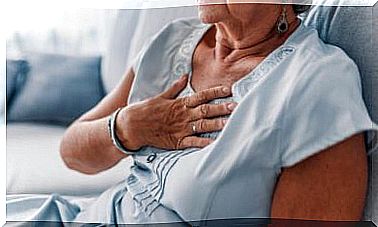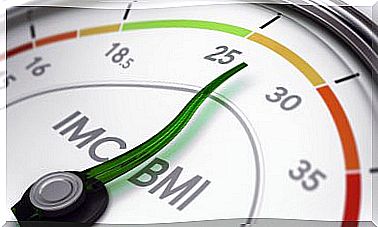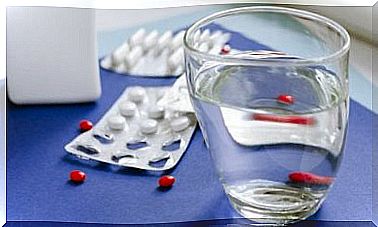Pulmonary Edema, What Are Its Symptoms And Causes?
Pulmonary edema is a pathology that consists of the accumulation of fluid in the lungs. This accumulation makes breathing difficult and therefore puts life at risk.
In most cases, pulmonary edema is caused by heart problems. However, it can also be caused by trauma, pneumonia (infection in the lungs) or by medications, as indicated by health experts.
Although many times it occurs progressively, it can occur suddenly. In these cases it is a medical emergency, and it can be fatal. For this reason , it should not be overlooked and seek medical help as soon as possible.
In this article we explain what pulmonary edema consists of, its causes and its symptoms.
What is pulmonary edema?
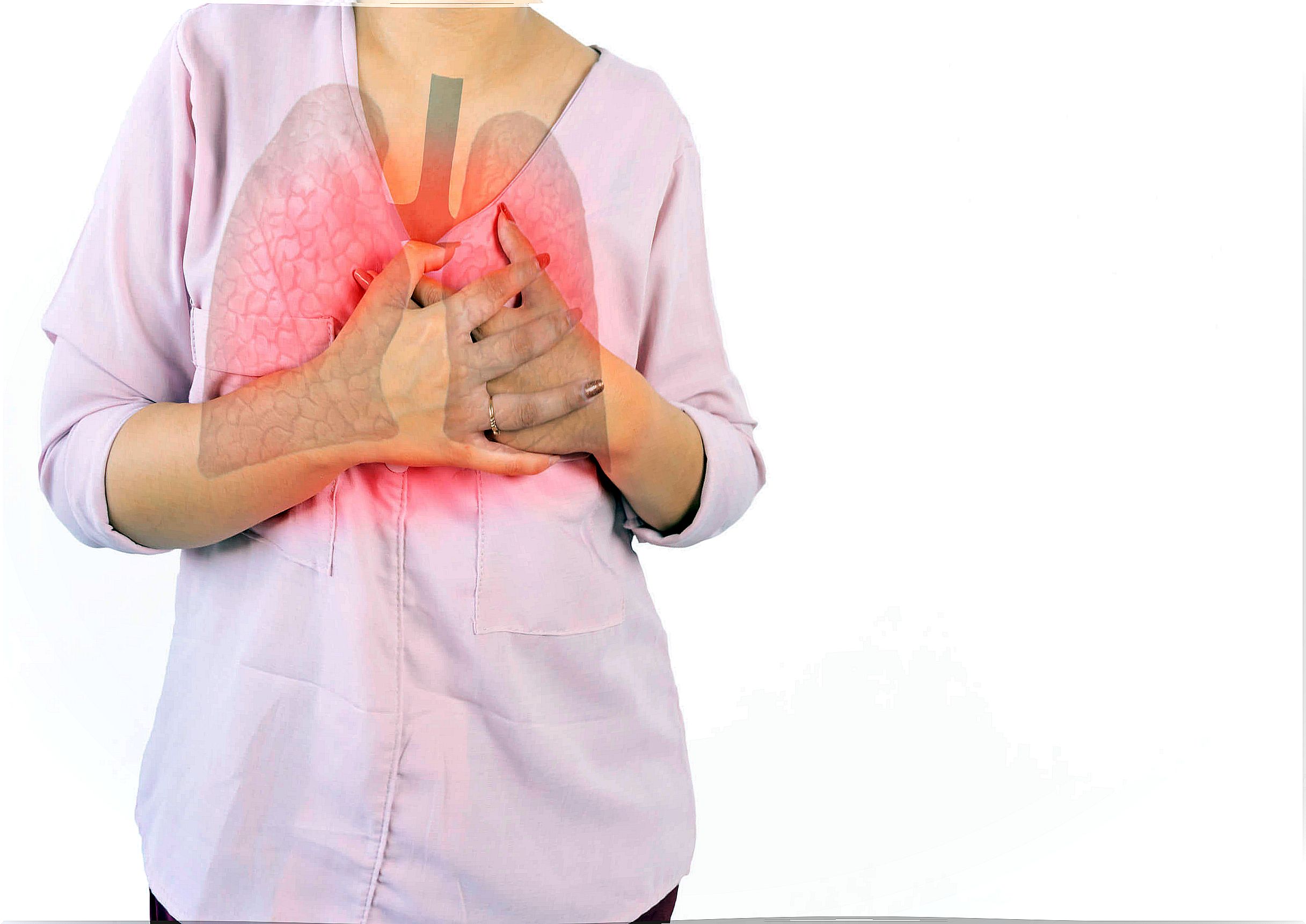
The alveoli are the air sacs that make up the lungs. They are responsible for absorbing oxygen and eliminating carbon dioxide during respiration. When they are filled with liquid instead of air, this gas exchange cannot be carried out correctly.
The accumulation of fluid is called pulmonary edema . It is usually caused by causes related to the heart. In these circumstances, it is called cardiogenic pulmonary edema. It happens mostly when the left ventricle of the heart weakens.
On the other hand, pulmonary edema may not be related to the heart ( non-cardiogenic edema) . It happens, for example, when a person climbs to high altitude areas.
What are the causes of pulmonary edema?
Cardiogenic pulmonary edema
As we have already mentioned, cardiogenic pulmonary edema occurs as a result of heart disease. The most common problems that cause pulmonary edema are:
- Coronary artery alterations. They are those that are responsible for the circulation of the heart. They tend to become blocked due to accumulations of fat ( atheroma plaques ), which causes the heart to weaken. Blood tends to pool in the lungs, and this causes fluid to pass into the alveoli.
- Heart muscle injuries. It is called cardiomyopathy. The same thing happens as in the previous case, when the heart does not beat with enough force, the liquid returns to the lungs.
- Heart valve problems.
- Hypertension.
Non-cardiogenic pulmonary edema
In this case, the main causes are the following:
- High altitudes. When a person climbs to high altitude areas, an increase in pressure can occur due to vasoconstriction of the pulmonary capillaries. This causes the fluid to pass into the alveoli.
- Acute respiratory distress syndrome. It is a disorder in which the lungs fill with fluid and white blood cells. It can be due to trauma or infection.
- Medicines.
- For a pulmonary embolism. It occurs when a clot occupies a pulmonary blood vessel and prevents blood from circulating properly.
- Viral infections
- Inhalation of smoke or drowning.
What are the symptoms?
Symptoms will depend on the cause and how quickly the edema sets in. When it occurs acutely, the main symptoms are the following:
- Feeling of suffocation
- Noises when breathing ( wheezing ).
- Cough that may have blood stains.
- Tachycardia, the heart beats at a fast rate.
- The skin may be cold and clammy and the lips may be bluish.
- Shortness of breath that worsens when lying down.
When edema appears progressively, the symptoms are somewhat different:
- Shortness of breath also occurs, both with exertion and when lying down.
- The legs can swell.
- Increases the feeling of fatigue.
- Weight gain.
- Cough when you lie down and that is relieved when you sit down.
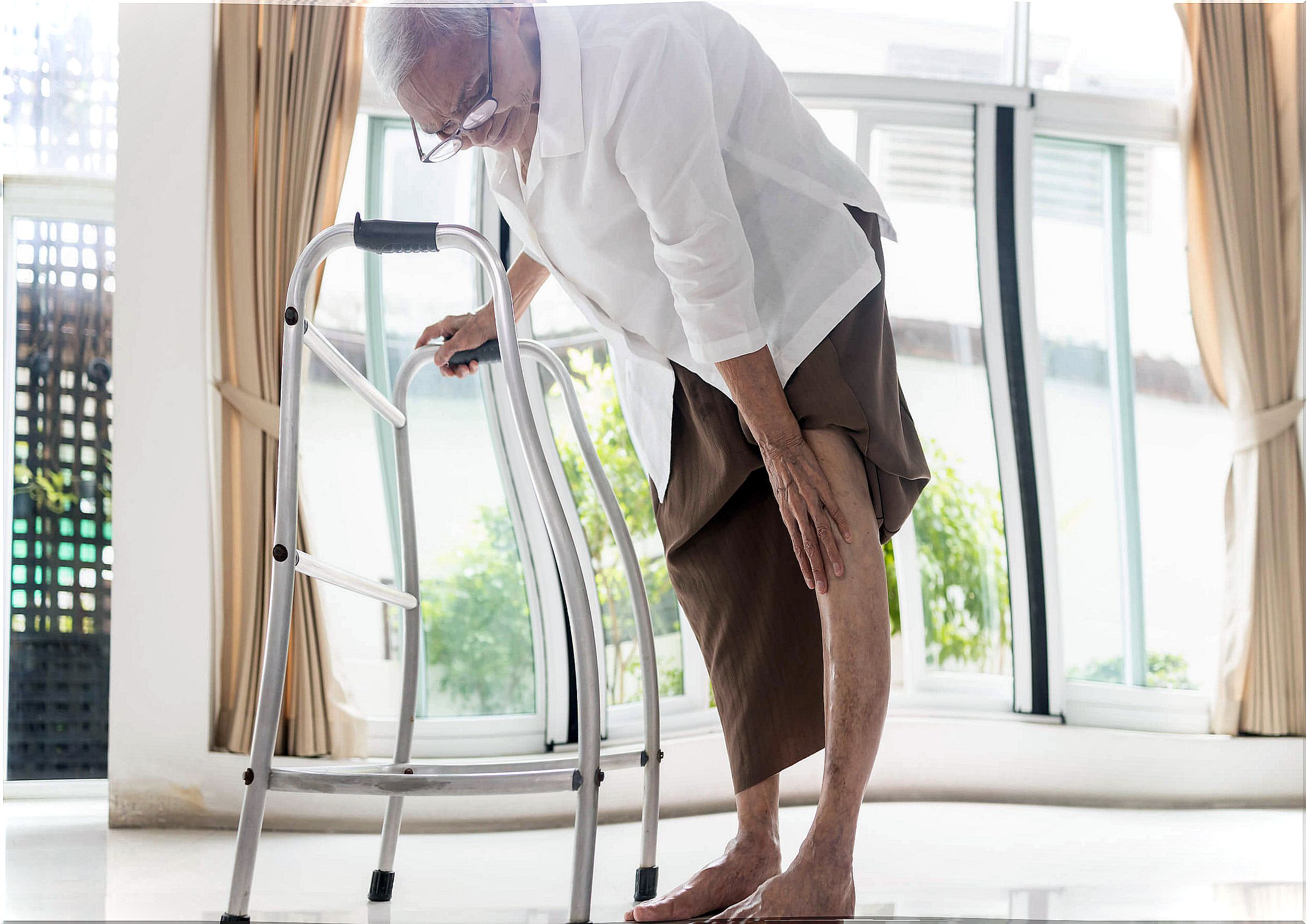
How can we prevent it?
To try to prevent it, the main thing is to try to avoid a heart problem. It is necessary to control blood pressure, since hypertension is one of the main risk factors for cardiovascular disease.
Exercising moderately every day and maintaining a proper diet are essential measures. They help control blood pressure levels, and also blood cholesterol. This is important because cholesterol is related to coronary artery disease.
On the other hand, you have to avoid smoking and drinking alcohol. In addition, it is recommended to maintain our weight in a healthy way. And of course, you have to try to manage stress.
If you feel shortness of breath, fatigue or any of the aforementioned symptoms, do not hesitate to see a doctor urgently. Pulmonary edema is a delicate situation that puts your health at risk.



